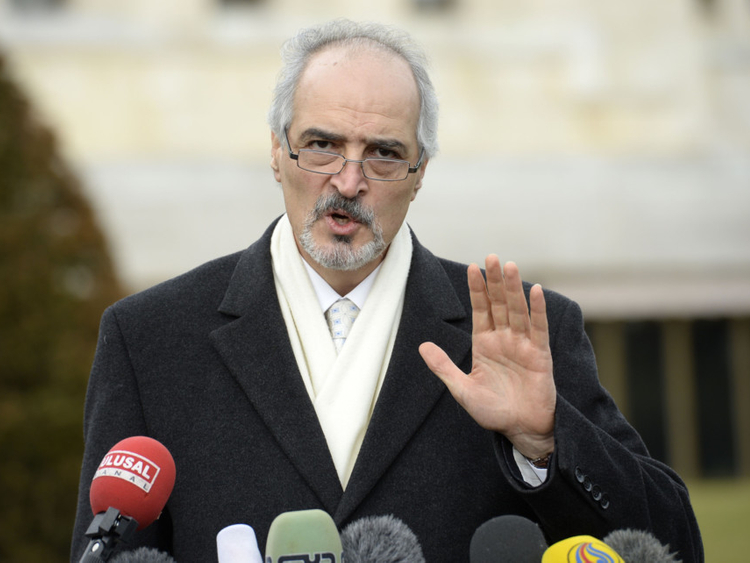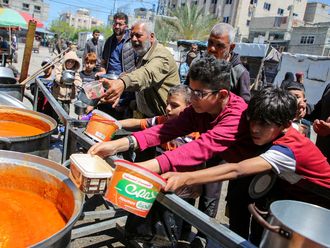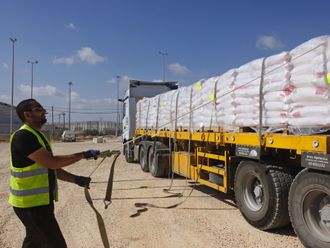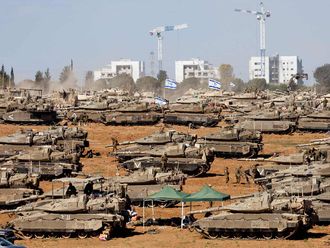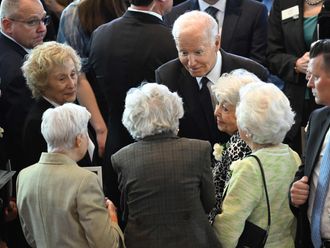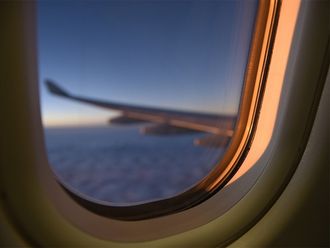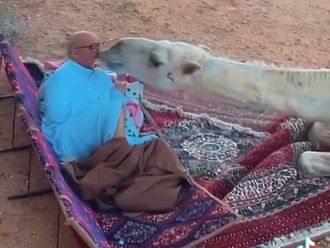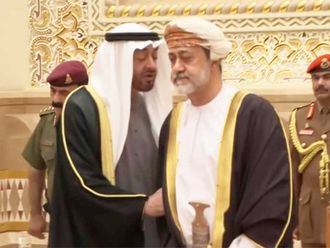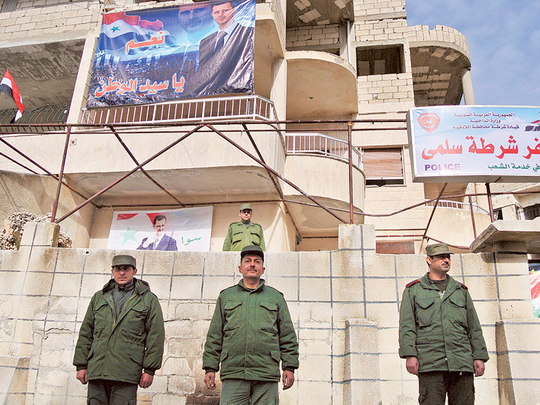
Beirut: Syrian negotiators are headed for a new round of talks in Geneva this week, despite major differences between them.
The opposition delegation backed by Riyadh will face off with the regime delegation backed by Moscow.
The Syrian opposition would like to see Syrian president Bashar Al Assad cede power immediately, while the other side says he is entitled to run for office in 2017.
The Syrian talks in Switzerland, or what has popularly been called “Geneva III” will take place this month but not on January 25 as previously planned.
Major disagreements have delayed the talks, albeit slightly, and they won’t be face-to-face, as what happened at Geneva II in January 2014.
Instead, Syrian negotiators will sit in separate rooms and UN envoys will carry messages back and forth between them — similar to how Syrian-Israeli talks were handled via Turkish mediation back in 2008.
The Saudi-backed opposition is still asking for confidence building measures before the talks start, like a halt of Russian and Syrian air strikes, but Moscow and Damascus insist that no concessions will be given ahead of the UN-backed peace talks.
The talks are already off on a bumpy road. For starters, Russia has curtly vetoed the Saudi-backed delegation to Geneva III, claiming that two of its prime components are “terrorist organisations”.
This is in reference to the Jaish Al Islam army which controls the suburbs of Damascus and Ahrar Al Sham in the Syrian North.
Both of them attended a high-profile conference in Saudi Arabia late last year, and agreed to take part in a political process only if it led to Al Assad’s ouster — something that Moscow strictly refuses to accept.
The Russians were highly critical of the Riyadh Conference, claiming that Saudi Arabia hijacked the Syrian Opposition and insist that talks will not pass if the Saudis get the upper hand with opponents of the Syrian government.
For its part, Saudi Arabia insists that these two groups, Ahrar Al Sham and Jaish Al Islam, are legitimate opposition parties that have fought against Daesh.
The commander of Jaish Al Islam, Zahran Alloush, was killed by a Russian air strike last December and Saudi Arabia has designated his brother, Mohammad, as “chief negotiator” at the upcoming talks.
Mohammad Alloush, an experienced fighter, has no background in politics, which observers say sheds doubt on his negotiation skills.
Additionally, five members of the opposition delegation are military figures headed by Asa’ad Al Zoubi, a former officer in the Syrian Air Force who now senior commander of western-backed Free Syrian Army (FSA) in southern Syria.
He has been named president of the opposition delegation to Geneva III.
It is the first time that a military figure rather than a politician, heads the opposition delegation, which is a testimony to the rising influence of armed groups on the ground and the diminishing role of foreign-based political parties. Also with the opposition are George Sabra of the Syrian National Coalition and three members of the National Coordination Committees, with a handful of independents.
All of them live abroad and have worked with Saudi Arabia, Qatar, and Turkey.
The Russians have put forth their list for Geneva III and insist that either it is merged with the Saudi one, or that two delegations represent the Syrian Opposition in Switzerland.
One suggestion was to seat all participants on a three-edge table, with the Russian-backed delegation one side, the Saudi-backed one on another, facing the official government delegation, which will be headed by Syria’s UN ambassador, Bashar Al Jaafari.
The Russian list includes Moscow-backed figures like human rights lawyer Haitham Manaa, writer and activists Randa Kassis and Reem Turkmani, former Syrian Foreign Ministry spokesman Jihad Makdisi, and Qadri Jamil, the communist ex-deputy premier of Syria.
Visibly absent from both the Saudi and Russian delegations are high-profile figures in the Syrian opposition, like defected Republican Guard officer Manaf Tlass, ex-opposition chief Mu’ath Al Khatib, and ex-Prime Minister Riad Hijab, who was named chief of the Higher Committee that created the official opposition delegation for Geneva III, without being part of it.
The talks in their current formula are unlikely to produce any breakthrough. The Russians are seemingly uninterested in giving such credit either to the Europeans or to the UN. They are currently planning another set of talks in Moscow, so the deal can be signed off by President Vladimir Putin.
Military developments in the Syrian battlefield, titling strongly in favour of the Syrian army since Russian air strikes started last September, have also reduced Russia’s enthusiasm for a quick political breakthrough, especially one not signed off completely by Moscow. They feel that more can be obtained militarily than what the negotiating table can ever yield. Since the Russian intervention started four months ago, the Syrian army has recaptured large tracts of land in the vicinity of Aleppo and the strategic mountains surrounding the coastal cities of Latakia and Tartous.
As they bomb from the skies, Iranian mediators are negotiating ceasefires and surrenders in the towns and villages around Damascus, giving the rebels safe exits with UN guarantees to Daesh held territory in Raqqa along the Euphrates River.
This is the second round of talks between the Syrian government and the Syrian opposition since start of the Syria War in 2011.
Geneva I, mediated by ex-UN Secretary-General Kofi Annan, took place in the summer of 2012 without any Syrian participation.
It called for creation of a Transitional Government Body (TGB) that takes all presidential powers from Al Assad.
Geneva II came next in early 2014, attended by both camps, which collapsed as hostilities broke out in Ukraine, fully occupying the Russian government.
Small workshops were held in the Russian capital in 2015, coined “Moscow I” and “Moscow II” that were boycotted by most Saudi-backed politicians in the Syrian opposition.
A major conference took place in Vienna last October, also without any Syrian presence, which called for a UN-mandated political process in Syria, to end the violence and create a cabinet of national unity, with no reference whatsoever in its nine-point communiqué to the fate of Al Assad.
It also did not say that he has to leave for the talks to start.
The 2016 benchmark for Syria are an upcoming parliamentary election next May, when the tenure of the current chamber expires.
According to Vienna, talks have to start this January and lead to a cabinet of national unity by next May. Vienna also says that early presidential elections must take place in the summer of 2017, whereas the official end of Al Assad’s tenure is July 2021.


